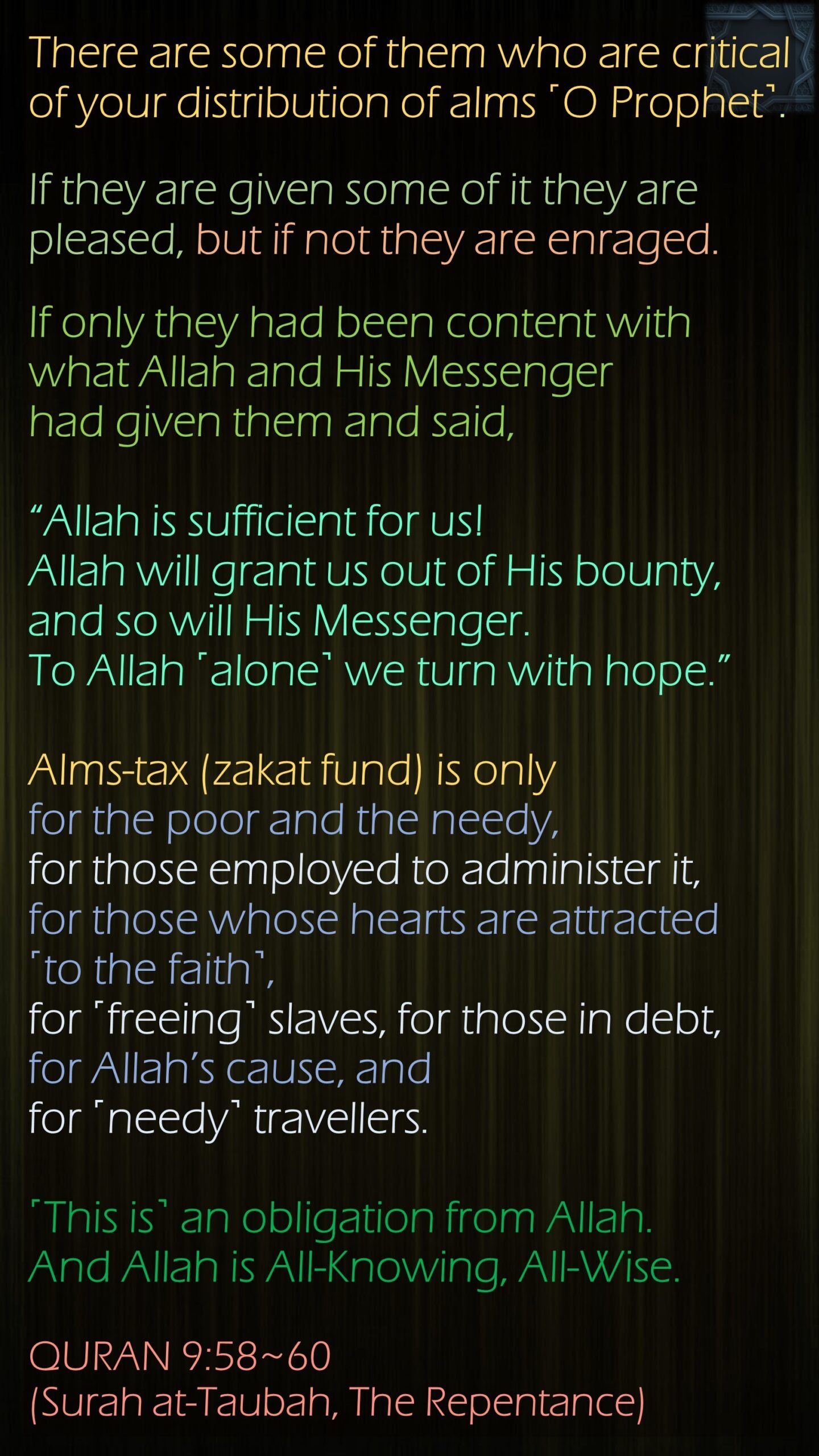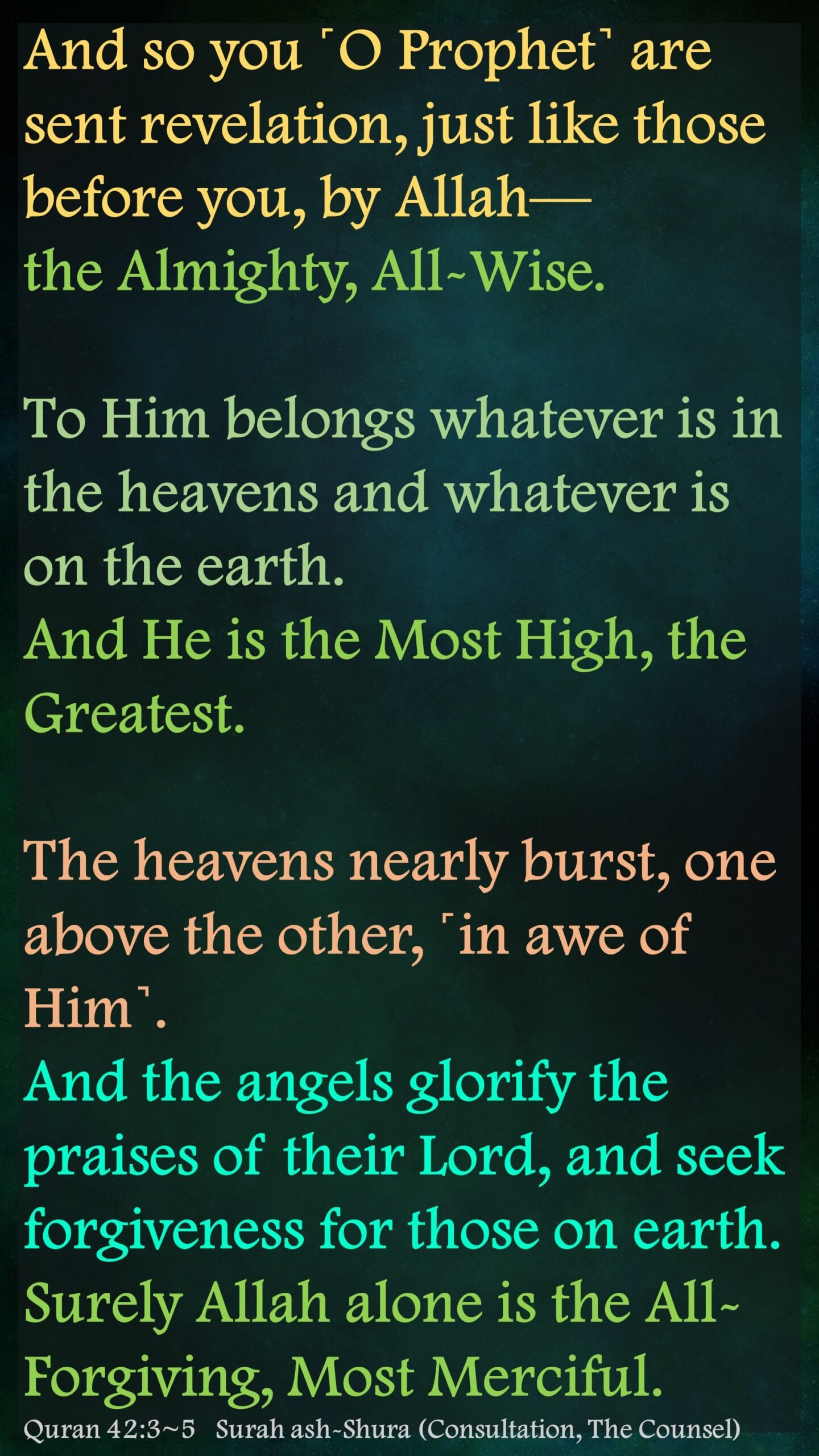Skip to Content
Tag Archives: All-Wise
- Home -
- Posts tagged "All-Wise"
( Page2 )
7
Jul, 2024
Islam, Quran
2, al-Ahqaf, All-Mighty, All-Wise, Allah, ayat, book, create, daily, disbelieve, earth, heavens, inspirations, islam, islamic, Muhammad, period, purpose, quran, sandhill, Surah, term, warn
13
Nov, 2023
Islam, Quran
All-Wise, Almighty, ayat, Bliss, daily, Gardens, Gardens of Bliss, good-doers, inspirations, islam, islamic, Muhammad, promise, quran, Surah, true
31
Oct, 2023
Islam, Quran
admister, All-Knowing, All-Wise, Allah, alms, cause, charity, daily, debt, distrivbution, Faith, free, inspirations, islam, islamic, Muhammad, needy, obligation, poor, quran, repentance, slave, Surah, taubah, tax, Traveller, Zakat
10
Jul, 2023
Islam, Quran
All-Wise, Allah, Almoghty, alternation, ayat, believers, book, creation, daily, day, disperse, earth, heavens, inspirations, islam, islamic, living, night, own, people, provision, quran, revive, shift, signs, skies, Surah, understand, winds
25
Dec, 2022
Islam, Quran
All-Wise, Allah, Almighty, awe, ayat, before, burst, Chapter 42, daily, earth, forgiveness, Glorify, Greatest, heavens, inspirations, islam, islamic, Most High, Muhammad, PBUH, Prophet, quran, revelation, SAWW, seek, Surah, Verse 3, Verse 4, verse 5
9
Nov, 2022
Islam, Quran
Adam, All-Wise, Allah, Almighty, alone, ayat, Be, chapter 3, children, created, curse, daily, doubt, dust, except, inspirations, invoke, islam, islamic, Jesus, Lord, narrative, Prophet, quran, Surah, true, truth, Verses 59 to 62, women, worship, worthy
31
Oct, 2022
Islam, Quran
All-Wise, Allah, Almighty, Angels, ayat, chapter 3, daily, Him, Himself, inspirations, islam, islamic, justice, knowledge, Maintainer, no god, people, quran, Surah, Verse 18, witness, worship, worthy
16
Sep, 2022
Islam, Quran
al Mumtahinah, All-Wise, Almighty, ayat, chapter 060, daily, disbelievers, forgive, inspirations, islam, islamic, quran, Surah, verse 5
19
Jul, 2022
Islam, Quran
absolve, achievement, All-Knowing, All-Wise, Allah, ayat, believers, Chapter 48, daily, earth, Faith, forces, garden, heart, Heaven, inspirations, islam, islamic, quran, serenity, sin, supreme, Surah, Verse 4, verse 5









